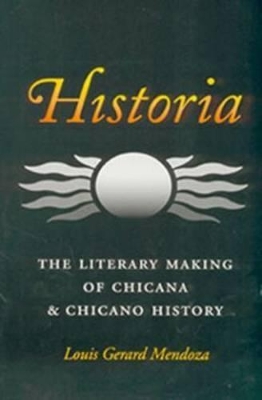Rio Grande/Rio Bravo: Borderlands Culture and Traditions
1 total work
Focusing on late twentieth-century literature and history by American writers of Mexican descent, Mendoza examines how style, purpose, and context function to facilitate or constrain the understanding of the past. By juxtaposing the literary and the historical, he provides new insight on culture, agency, and experience.
Mendoza accepts as his starting point the generational model posited by historian Mario Garcia, then contrasts for each "generation" the nuances and contradictions offered by one or more Chicana/o creative writers. Other historians whose works are centrally considered include Juan Gomez-Quinones, Rodolfo Alvarez, Ricardo Romo, David Montejano, and Carlos Munoz, while the literary writers featured include Jovita Gonzalez, Alejandro Morales, Sara Estela Ramirez, Teresa Paloma Acosta, Oscar Zeta Acosta, and Americo Paredes.
Mendoza argues that history is the narrative battleground upon which literature is based--the writing and rewriting of Chicano history thus becomes an important subtext of Chicana/o literature. However, he contends that most Chicana/o historical narratives are integrated uncritically into literary analysis to establish background, resulting in the invocation of the histories as representations of the "real."
Libraries, Borderlands scholars, and those interested in the broad issues of cultural studies will want to own Mendoza's innovative book, which instead of insisting on the strict separation of the two genres of history and literature, seeks ways to integrate them through the new critical analysis.
